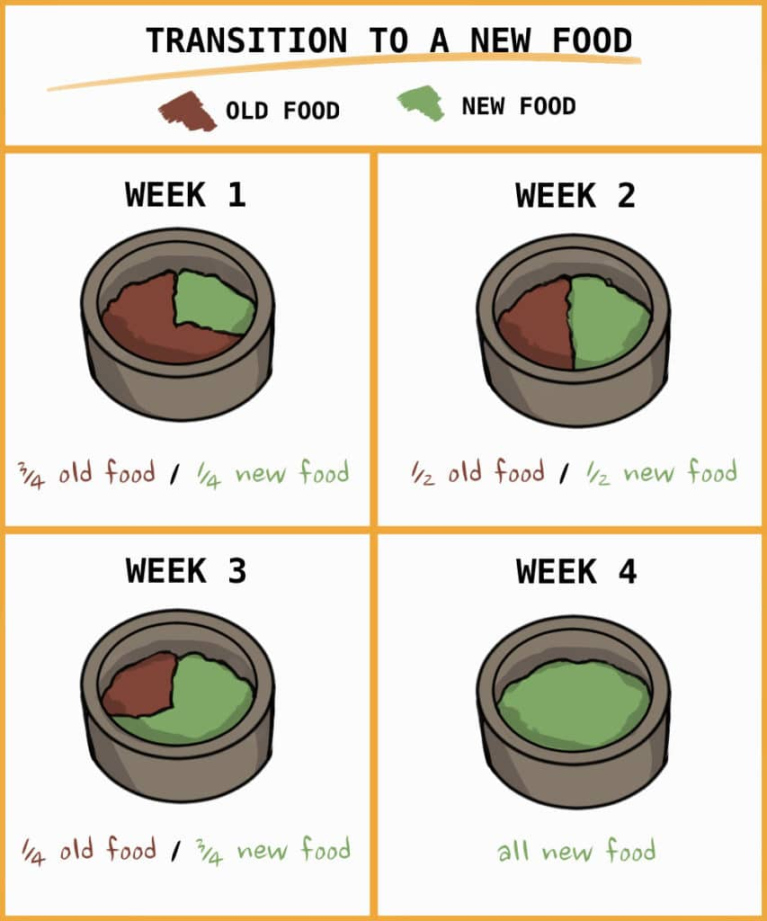How Much Pellets to Feed a Baby Rabbit?
Feeding a baby rabbit can be a delicate task, as their nutritional needs are different from those of adult rabbits. One of the main components of a young rabbit’s diet is pellets, which provide them with the necessary nutrients for growth and development. However, it is crucial to understand the appropriate amount of pellets to feed a baby rabbit to ensure its health and well-being.

Factors to Consider
Several factors should be taken into consideration when determining the amount of pellets to feed a baby rabbit:
- Age: The age of the baby rabbit plays a significant role in determining the appropriate pellet intake. Younger rabbits require more pellets to support their rapid growth.
- Size: The size of the rabbit also impacts the amount of pellets they should consume. Smaller rabbits typically need fewer pellets compared to larger ones.
- Activity level: Active baby rabbits may require more pellets to meet their energy needs.
- Health: Any underlying health conditions or special dietary requirements should be considered when determining the pellet intake for a baby rabbit.
General Guidelines
While the specific pellet intake for a baby rabbit may vary based on the factors mentioned above, there are some general guidelines to follow:
- For baby rabbits between 0-3 months old, their pellet intake should be approximately 1/4 cup per day.
- As the baby rabbit grows, between 3-6 months old, their pellet intake can gradually increase to 1/2 cup per day.
- After 6 months of age, the rabbit can transition to an adult diet, and the pellet intake should be adjusted accordingly.
It is important to note that pellets should not be the sole source of nutrition for baby rabbits. High-quality hay, fresh vegetables, and clean water should also be provided to ensure a well-balanced diet.
Monitoring Weight and Adjusting Pellet Intake
Weighing your baby rabbit regularly is an effective way to monitor their growth and adjust the pellet intake accordingly. If the rabbit is gaining too much weight, it may be necessary to reduce the pellet portion size. On the other hand, if the rabbit is not gaining weight appropriately, increasing the pellet intake might be necessary. Consult with a veterinarian for specific recommendations based on your rabbit’s individual needs.
It is essential to keep in mind that the pellet intake guidelines provided are general recommendations. Every baby rabbit is unique, and their dietary needs may vary. Consulting with a veterinarian experienced in rabbit care is always recommended to ensure optimal nutrition for your baby rabbit.
Frequently Asked Questions (FAQs)
1. Can I free-feed pellets to my baby rabbit?
Free feeding, which means providing unlimited access to pellets, is not recommended for baby rabbits. They may overeat and develop health issues. It is best to follow the recommended guidelines for pellet intake and monitor your rabbit’s weight regularly.
2. Should I feed my baby rabbit a specific type of pellet?
Choosing a high-quality pellet specifically formulated for young rabbits is essential. These pellets contain optimal levels of nutrients necessary for their growth. Avoid pellets meant for adult rabbits, as the nutritional composition may not be suitable for baby rabbits.
3. Can I give my baby rabbit treats in addition to pellets?
Treats should be given sparingly to baby rabbits, as they can disrupt their balanced diet. Fresh vegetables and herbs can serve as occasional treats, but ensure they are introduced gradually and in small quantities to prevent digestive issues.
4. Are pellets the only source of nutrition for baby rabbits?
No, pellets should not be the sole source of nutrition for baby rabbits. High-quality hay, such as timothy or orchard grass, should be available at all times. Fresh vegetables, such as leafy greens and herbs, can also be included in their diet. Water should be provided in clear, accessible containers.
Feeding a baby rabbit requires careful consideration of its nutritional needs. By following the appropriate guidelines and consulting with a veterinarian, you can provide your baby rabbit with a healthy and balanced diet that promotes its growth and well-being.
Related Articles…
Copyright Notice:
This website utilizes images found online, all copyrights are retained by their original owners. If you would like an image removed, kindly contact us.